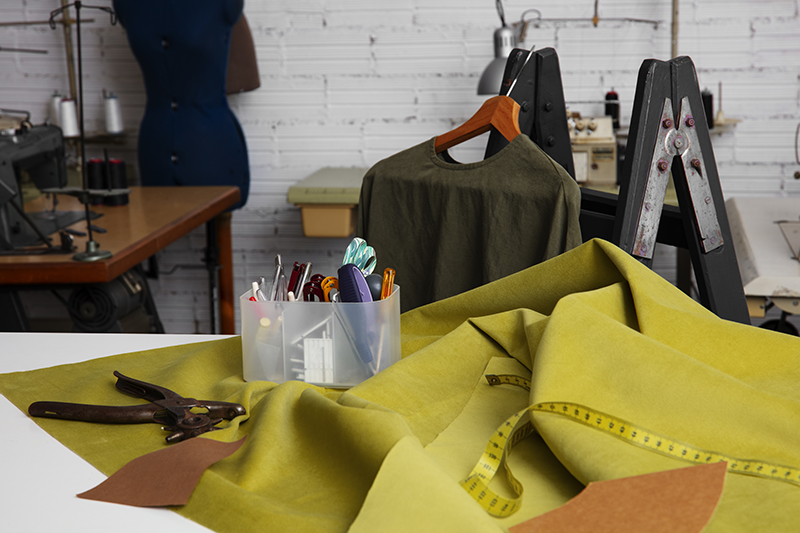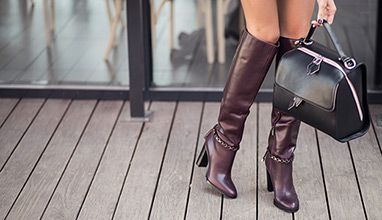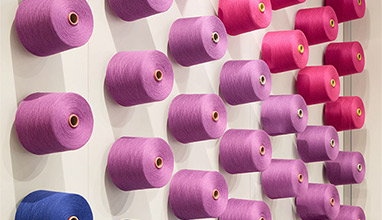Eco-Chic: The Sustainability of Custom-Tailored Fashion
In a world where fast fashion has long held the reins of the clothing industry, consumers are increasingly seeking alternatives that align with their values, particularly regarding sustainability. One such alternative that has been gaining traction is custom-tailored fashion.
This trend goes beyond mere aesthetics, it embodies a fundamental shift toward more environmentally responsible and ethical clothing practices. But what are the various facets of custom-tailored fashion, and how is it making significant strides toward a more sustainable future?

The Slow Fashion Movement
Custom-tailored clothing is at the forefront of the slow fashion movement, a stark departure from the fast fashion frenzy that has dominated the industry for decades.
Slow fashion focuses on creating garments that are timeless in design and durable in construction. By its very nature, custom tailoring emphasizes quality over quantity. Each piece is meticulously crafted to fit the individual wearer perfectly, eliminating the need for mass production.
Moreover, slow fashion promotes the use of high-quality, sustainable materials. Custom tailors often work with ethically sourced and eco-friendly fabrics, further minimizing the environmental impact of clothing production.
This shift towards slow fashion aligns with the principles of sustainability by encouraging consumers to invest in fewer, high-quality items that last longer, reducing the turnover of garments in their wardrobes.
Reducing Waste Through Precision
One of the most compelling arguments favoring custom-tailored fashion's sustainability is its ability to minimize waste. From Made-to-measure suits for formal events to dresses for casual wear, many individuals are turning to this option to minimize their environmental impact.
Traditional clothing manufacturing often results in significant fabric waste due to the cutting process, where standard-sized patterns are used to create garments. In contrast, custom tailors take precise measurements of the wearer's body and create patterns that maximize the use of the fabric, leaving little to no scraps behind. This practice conserves resources and reduces the textile industry's carbon footprint.
Additionally, custom-tailored clothing is designed with longevity in mind. When garments are made to fit perfectly, there is a greater likelihood that they will remain in the wearer's wardrobe for years rather than being discarded after a few uses. This shift from disposable fashion reduces textile waste in landfills, another critical aspect of sustainable clothing practices.
Personalization and Emotional Attachment
Custom-tailored fashion is as much about personalization as it is about sustainability. When individuals have the opportunity to work closely with a tailor to create clothing that fits their unique body shape and style preferences, a stronger emotional connection to those garments is formed. This emotional attachment often translates into a longer lifespan for the clothing, as people are more inclined to care for and repair items they cherish.
Furthermore, the personalization aspect leads to decreased impulse buying, a habit often associated with fast fashion. Consumers who invest in custom-tailored pieces are less likely to buy clothing on a whim, reducing overconsumption and its negative environmental consequences. Instead, they carefully consider each addition to their wardrobe, prioritizing sustainable choices.
Local Production and Ethical Labor
Custom tailoring typically occurs on a smaller, local scale, as opposed to the large, international production chains commonly found in the fast fashion industry. This localization offers several benefits for sustainability.
First, it reduces the carbon footprint associated with shipping clothing across long distances. Second, it supports local economies and artisans, fostering ethical labor practices.
Custom tailoring also promotes transparency in the production process. Consumers often have the opportunity to interact directly with the tailors, gaining insights into the craftsmanship and materials used. This transparency encourages accountability and ensures that ethical and sustainable practices are upheld throughout the production chain.
Affording Custom-Tailored Fashion on a Budget
While custom-tailored clothing offers numerous advantages in terms of sustainability and personalization, it's no secret that it can be perceived as a luxury reserved for those with deep pockets.
However, there are ways to make custom-tailored fashion more accessible without breaking the bank. Here’s how:
Prioritize Key Pieces
Instead of overhauling your entire wardrobe with custom-made items, focus on key pieces you wear frequently. A well-tailored suit, a versatile blazer, or a classic dress can serve as the foundation of your wardrobe, and investing in these core pieces can be more affordable than a full custom wardrobe.
Build Over Time
Custom-tailored clothing doesn't have to be an all-or-nothing endeavor. Build your custom wardrobe gradually. Add one or two custom pieces each season or year as your budget allows. This incremental approach ensures that you get the clothing you desire without straining your finances.
Seek Out Sales and Discounts
Some custom tailors offer promotions or discounts during specific times of the year. Keep an eye out for these opportunities, especially during off-seasons when tailors may be looking to attract more business. Joining mailing lists or following tailor shops on social media can also help you stay informed about special offers.
Choose Versatile Fabrics and Styles
When working with your tailor, opt for versatile fabric choices and classic styles that won't go out of fashion quickly. This ensures that your custom pieces remain relevant and functional for longer, ultimately providing better value for your investment.
Consider Online Customization
Some online platforms offer made-to-measure clothing options at more affordable prices than traditional tailors. While this approach may require careful measurements and patience, it can be a cost-effective way to enjoy custom-tailored pieces.
Final Thoughts
In the era of heightened environmental awareness and ethical considerations, custom-tailored fashion stands as a beacon of sustainability in the clothing industry. As consumers continue to prioritize sustainability in their clothing choices, the rise of custom-tailored fashion serves as a testament to the industry's potential for positive change. This proves that eco-chic can be more than just a trend—it can be a sustainable way of life.
Hits: 9874 | Leave a comment


















